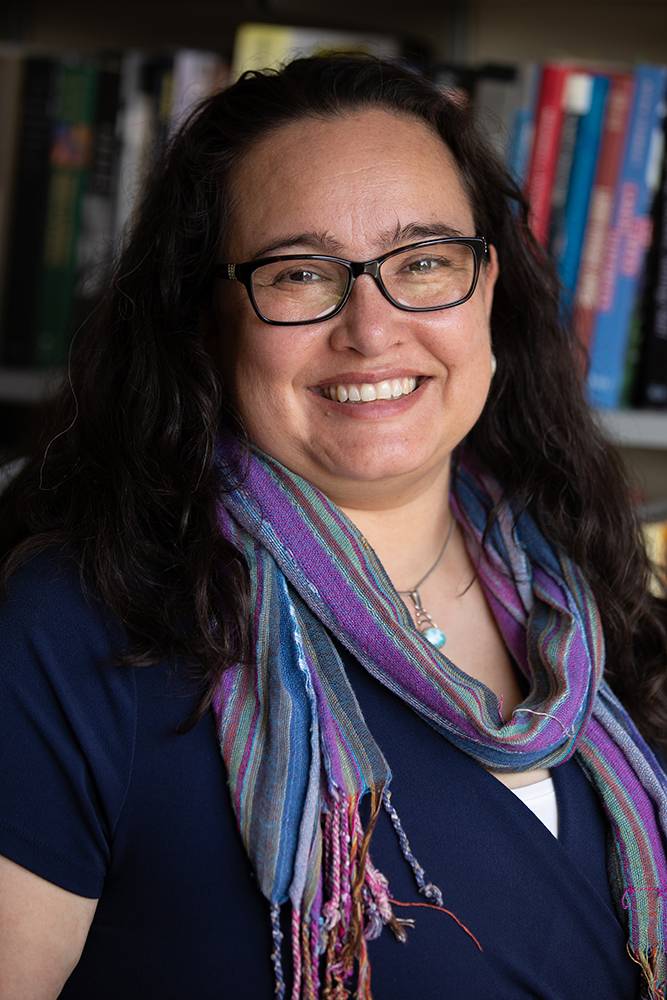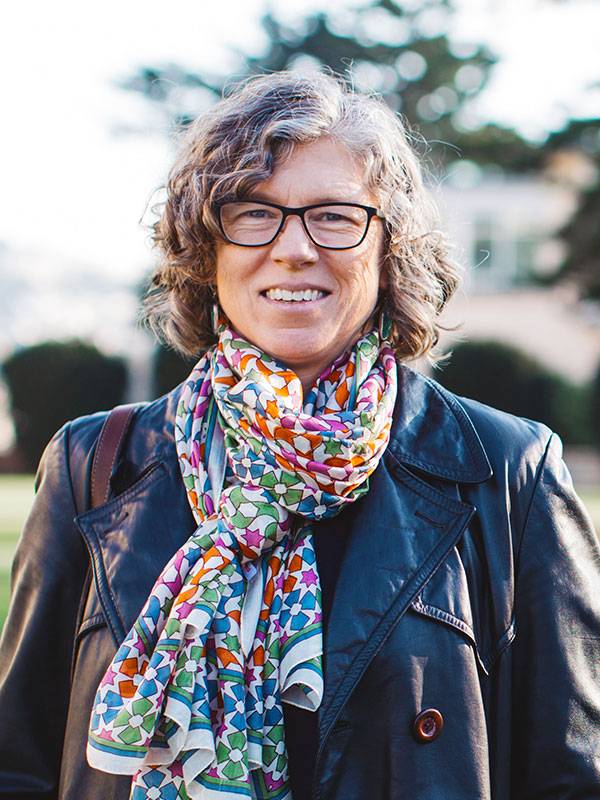Love in Precarious Times:
The Queer Politics of Migration
Ariana Ochoa Camacho and Kathleen Coll
Thursday, April 14, 2022
12:30 PM (CST)
Online via Zoom
Ariana Ochoa Camacho and Kathleen Coll
Thursday, April 14, 2022
12:30 PM (CST)
Online via Zoom
Anthropologists Ariana Ochoa Camacho and Kathleen Coll describe the collaborative trajectory of Love in Precarious Times from accidental electronic communication, to collaborative participatory research, peer review and publication. Ochoa Camacho and Coll argue argue that increased media coverage of the human costs of border enforcement, especially the detention of children and the separation of families, has called attention to structural violence and inhumanity in the US immigration system. An estimated eleven million undocumented people and millions more members of mixed-status families have lived for years with the trauma caused by legal exclusion, economic precarity, and separation from loved ones. Yet years of legislative reform efforts and rights claims based on heteronormative notions of immigrant respectability, family unity, and economic contributions have failed to yield better policies.
This article describes a turn within the immigrant rights movement in the 2010s toward a more transformative politics of radical inclusion across, not in spite of, differences in sexuality, gender, race, citizenship, and immigration status. Citing examples from immigrant public testimonies, movement publications, LISTSERVs, and social media, Ochoa Camacho and Coll argue that they offer evidence of new, durable bonds of political interdependence being forged between unusual allies in the struggle against racist and homo/transphobic state violence that Ochoa Camacho and Coll describe as a queer politics. The gains of the marriage equality movement, especially shifting cultural acceptance of same-sex love, support immigrant organizing across and beyond the constraints of strategic alliances, coalitions, and hierarchies of deservingness. Practices of loving politics, particularly in the current context, offer resources for hope for a stronger and more durable political consensus about what constitutes immigrant justice in the future.

Ariana Ochoa Camacho is a faculty member at the University of Washington – Tacoma in their cultural studies program. In their research and teaching, Ariana Ochoa Camacho pushes disciplines, scholars, and students to take gender and performance more seriously in understanding the links that shape local, regional, national, transnational, and imperial processes at work in the Americas. Her book project "Racial Longings, Migrant Belongings,” examines the frictions of Latin American and U.S. racial discourses as they propel the embodied performances and experiences of Colombian nationalism in the New York Metro region, particularly in the contexts of cultural festivals and community celebrations. Ochoa Camacho argues that the racial performances of Colombian migrants in New York are part of a creative petition that refuses racial ‘otherization,’ and are shaped through the multiple cultural contexts of migrant lives.
Prof. Ochoa Camacho earned a Ph.D. in American Studies from New York University, M.A. in Communication from San Francisco State University, and a B.A. in Anthropology from Kenyon College. She has published her work with Demeter Press, Columbia University Press, Emerging Perspectives in Health Communication, Feminist Media Studies, as well as collaborated with a visual artist to produce a video, “Elizabeth’s Story,” now housed at the National Museum of Mexican Art. Her work uses qualitative methodologies particularly from a cultural studies frame to look at marginalization and dynamics of power in contemporary society.
Her next large project, "Toxics, Race and Geography,” continues to examine investments in difference, culture, embodiment, and environmental justice relating to science, society/race, and the body. Grounded in spaces linking experience, structure and suffering that shape the social construction of chronic diseases, she explores disease as a lived social process of intoxication that is spatialized and embodied, particularly in urban spaces.

Kathleen Coll is a political anthropologist whose research and teaching focuses on immigration politics and policies, cultural citizenship, and grassroots community organizing in the U.S., with special emphasis on the Bay Area. They are an Associate Professor in the Department of Politics at the University of San Francisco. Her book Remaking Citizenship: Latina Immigrants and New American Politics (Stanford University Press, 2010) is an ethnography of San Francisco immigrant women’s experiences and activism in the context of hostile national immigration, welfare, and labor policies. Her most recent book Disputing Citizenship (Policy Press, 2014) is the result of a seven-year collaboration with colleagues from the UK, France and Brazil and reflects her current interests in the efforts to regain local voting rights for non-citizens in the US and the domestic workers rights movement. Her first book, Gendered Citizenships, is a co-edited volume featuring ethnographic research on cultural citizenship and women of color in the US, UK, Brazil, and Central America.
Prior to joining USF’s Department of Politics in Fall 2014, Kathleen was a lecturer at Stanford and Harvard Universities, a fellow at the Radcliffe Institute for Advanced Study, the recipient of a post-doctoral fellowship from the Social Science Research Council, and a visiting scholar at the Foundation Maison des Sciences de l'Homme and Columbia University's Reid Hall in Paris. She particularly enjoys supporting students in their own politically-engaged research and community-based service-learning projects.
Ariana Ochoa Camacho, Kathleen M. Coll, “Love in Precarious Times: A Queer Politics of Immigration,” Frontiers: a Journal of Women Studies, 42:2 (2021), 85-110